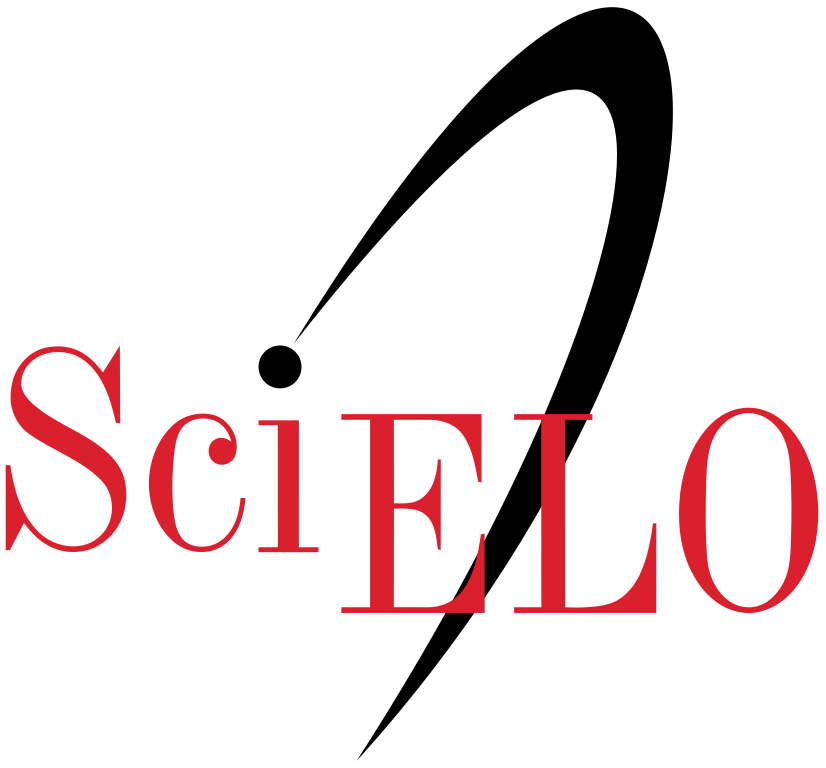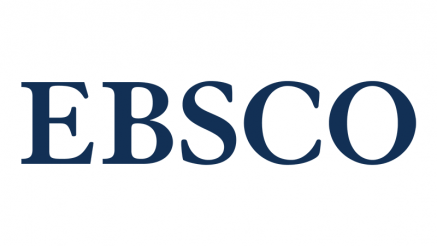Desarrollo de un contenedor y clasificador automático de material reciclable como estrategia de economía circular en el contexto educativo
DOI:
https://doi.org/10.14482/inde.39.1.006.38Palabras clave:
Automatización, Desarrollo sostenible, Inteligencia artificial, SaneamientoResumen
El objetivo de esta investigación fue realizar una caracterización de los residuos sólidos reciclables producidos en la Universidad de la Amazonia y desarrollar un contenedor y clasificador automático de este tipo de residuos, para contribuir por medio de las tecnologías de la información y la comunicación (TIC) al proceso de sostenibilidad ambiental ligado al concepto de economía circular en el ámbito educativo. La metodología definida se dividió en cinco fases que corresponden al conocimiento del manejo de residuos sólidos de los usuarios de las cafeterías, caracterización de los residuos sólidos, diseño y construcción del contenedor, entrenamiento del sistema de inteligencia artificial (IA) y prueba interna beta test, tras lo cual se obtuvo como resultado una generación total de residuos plásticos a la semana de 66 kg, lo que representa un ingreso económico aproximado de $138.000. Además, se desarrolló un contenedor y clasificador automático capaz de reconocer y almacenar botellas plásticas empleando una red neuronal artificial. Como conclusión, el reciclaje de residuos plásticos en una institución de educación superior (IES) aporta a la sostenibilidad ambiental. Además, el desarrollo de tecnologías como el contenedor y clasificador automático permite optimizar la selección y clasificación de elementos reciclables de forma rápida y segura.
Referencias
G. Michelini, R. N. Moraes, R. N. Cunha, J. Costa y A. R. Ometto, “From linear to circular economy: PSS conducting the transition”, Procedia CIRP, vol. 64, pp. 2-6, jun. 2017. https://doi.org/10.1016/j.procir.2017.03.012
J. Buchmann-Duck y K. F. Beazley, “An urgent call for circular economy advocates to acknowledge its limitations in conserving biodiversity”, Sci. Total Environ., vol. 727, p. 138602, jul. 2020. https://doi.org/10.1016/j.scitotenv.2020.138602
Z. Fu y J. Wang, “Current practices and future perspectives of microplastic pollution in freshwater ecosystems in China”, Sci. Total Environ., vol. 691, pp. 697-712, nov. 2019. https://doi.org/10.1016/j.scitotenv.2019.07.167
F. Wagner, J. R. Peeters, J. D. Keyzer, K. Janssens, J. R. Duflou y W. Dewulf, “Towards a more circular economy for WEEE plastics - Part A: Development of innovative recycling strategies”, J. Waste Manag., vol. 100, pp. 269-277, dic. 2019. https://doi.org/10.1016/j.wasman.2019.09.026
E. Uçar, M. A. Le Dain y I. Joly, “Digital technologies in circular economy transition: evidence from case studies”, Procedia CIRP, vol. 90, pp. 133-136, ag. 2020. https://doi.org/10.1016/j.procir.2020.01.058
M. Abdallah, M. Abu Talib, S. Feroz, Q. Nasir, H. Abdalla y B. Mahfood, “Artificial intelligence applications in solid waste management: a systematic research review”, J. Waste Manag., vol. 109, pp. 231-246, my. 2020. https://doi.org/10.1016/j.
wasman.2020.04.057
G. I. González Ordaz y J. G. Vargas Hernández, “La economía circular como factor de la responsabilidad social”, Economía Coyuntural, vol. 2, no. 3, pp. 105-130, jul. 2017.
C. H. Balboa C. y M. Domínguez Somonte, “Economía circular como marco para el ecodiseño: el modelo ECO-3”, Informador técnico, vol. 78, no. 1, pp. 82-90, en.-jun. 2014 [En línea]. Disponible en: https://dialnet.unirioja.es/descarga/
articulo/4881026.pdf
L. Sandoval, Evaluación de la gestión integral de residuos sólidos con énfasis en la disposición final en el municipio de Cobija Pando - Bolivia. Organización Panamericana de la Salud, 2004 [En línea]. Disponible en: https://1library.co/document/yjkd5m2q-evaluacion-gestion-integral-residuos-solidos-enfasis-disposicion-municipio.html
J. Tisza, M. Chauca y A. Castillo, “Learning methodology for education in electronic engineering electronic-devices based on the inductive method top-down”, Procedia Comput. Sci., vol. 172, pp. 729-734, jun. 2020. https://doi.org/10.1016/j.procs.2020.05.104
M. Ließ, “At the interface between domain knowledge and statistical sampling theory: conditional distribution-based sampling for environmental survey (CODIBAS)”, Catena, vol. 187, p. 104423, abr. 2020. https://doi.org/10.1016/j.catena.2019.104423
M. Wei-Lung, C. Wei-Chun, W. Chien-Tsung y L. Yu-Hao , “Recycling waste classification using optimized convolutional neural network”, Resour. Conserv. Recycl., vol. 164, p. 105132, en. 2021. https://doi.org/10.1016/j.resconrec.2020.105132
B. S. Sathish, P. Ganesan, L. M. I. Leo Joseph, K. Palani y R. Murugesan, “A two-level approach to color space-based image segmentation using genetic algorithm and feed-forward neural network”, Adv. Intell. Syst. Comput., vol. 1133, pp. 67-78, ag. 2021. https://doi.org/10.1007/978-981-15-3514-7_6
O. Owojori, J. N. Edokpayi, R. Mulaudzi y J. O. Odiyo, “Characterisation, recovery and recycling potential of solid waste in a university of a developing economy”, Sustainability, vol. 12, no. 12, pp. 1-17, jun. 2020. https://doi.org/10.3390/su12125111
Y. Chen, A. K. Awasthi, F. Wei, Q. Tan y J. Li, “Single-use plastics: production, usage, disposal, and adverse impacts”, Sci. Total Environ., vol. 752, p. 141772, en. 2021. https://doi.org/10.1016/j.scitotenv.2020.141772
M. Saleh, M. Yalvac y M. A. Mazmanci, “Characterization of solid waste in Mersin University: main campus and development of solid waste management plan”,Fresenius Environ. Bull., vol. 29, no. 8, pp. 6386-6392, my. 2020.
Y. Hao, L. O. Wang, X. S. Chen y L. Wang, “The determinants of waste-sorting intention and behavior among Chinese undergraduate students: a case study in Beijing”, Singapore Economic Review, vol. 65, no. 3, pp. 627-652, my. 2020. https://
doi.org/10.1142/S0217590817410077
A. S. Vieira, R. A. Stewart, R. Lamberts y C. D. Beal, “Renewable energy and energy conservation area policy (REECAP) framework: a novel methodology for bottom-up and top-down principles integration”, Energy Strategy Rev., vol. 32, pp. 2-17, nov. 2020. https://doi.org/10.1016/j.esr.2020.100544
F. B. Yahya, C. J. Lukas y B. H. Calhoun, “A top-down approach to building battery-less self-powered systems for the internet-of-things”, J. Low Power Electron. Appl., vol. 8, pp. 21-34, jun. 2018. https://doi.org/10.3390/jlpea8020021
J. J. Kim, “Action-based solar education in architecture”, Sustain. Cities Soc. , vol. 60, pp. 102-185, sept. 2020. https://doi.org/10.1016/j.scs.2020.102185
Q. Jiang, T. Izumi, H. Yoshida, D. Dilixiati, N. Leeabai, S. Suzuki y F. Takahashi, “The effect of recycling bin design on PET bottle collection performance”, J. Waste Manag., vol. 95, pp. 32-42, jul. 2019. https://doi.org/10.1016/j.wasman.2019.05.054
K. H. Yu, Y. Zhang, D. Li, C. E. Montenegro Marin y P. M. Kumar, “Environmental planning based on reduce, reuse, recycle and recover using artificial intelligence”,Environ. Impact Assess. Rev., vol. 86, pp. 106-492, en. 2021. https://doi.org/10.1016/j.eiar.2020.106492
Y. Wang, Y. Gu, Y. Wu, G. Zhou, H. Wang, H. Han y T. Chang, “Performance simulation and policy optimization of waste polyethylene terephthalate bottle recycling system in China”, Resour. Conserv. Recycl., vol. 162, pp. 105-114, nov. 2020. https://doi.org/10.1016/j.resconrec.2020.105014
G. Coskuner, M. S. Jassim, M. Zontul y S. Karateke, “Application of artificial intelligence neural network modeling to predict the generation of domestic, commercial and construction wastes”, Waste Manag. Res., pp. 1-12, jun. 2020.
https://doi.org/10.1177/0734242X20935181
B. Molina Serrano, N. González-Cancelas y F. Soler-Flores, “Inteligencia artificial para determinar si el empleo de gas natural licuado en el short sea shipping es una apuesta social”, Ing. Desarro., vol. 36, no. 2, pp. 418-436, jul. 2018. https://doi.org/10.14482/inde.36.2.10458









